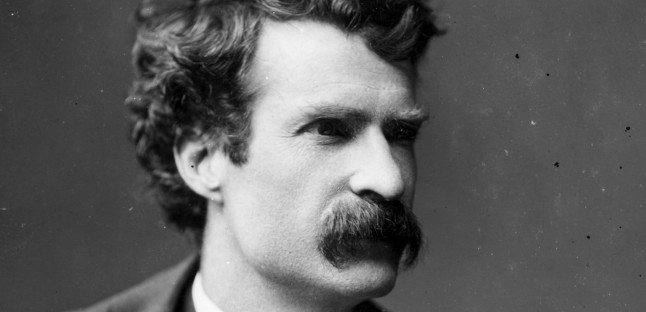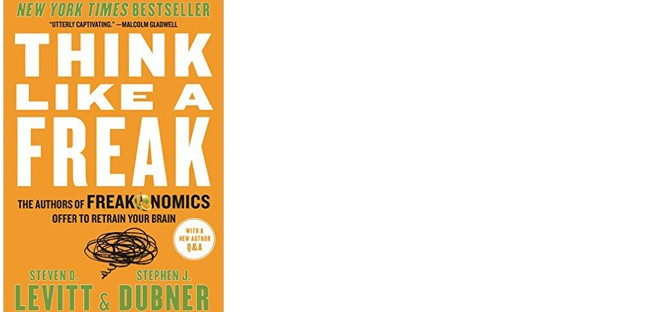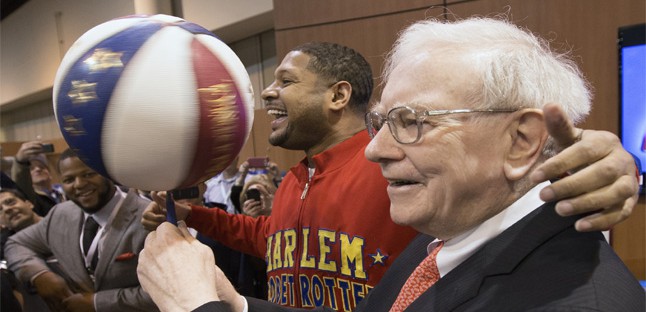Back to all posts
Latest posts
A masterclass in creating value
What’s going on at parkrun?
Virtue-signalling all the way to the bank
Bud Light: brand purpose or virtue-signalling?
The Coddling of the American Mind, by Greg Lukianoff and Jonathan Haidt
Belonging, by Owen Eastwood
Such a simple thing
The Long Win, and The Scout Mindset
The Cult of We by Eliot Brown and Maureen Farrell
Coffee and covid modelling
By theme
Marketing strategy
Insight & metrics
Innovation & inspiration
Brand & positioning
Marketing communications
Business purpose
Leadership
By industry sector
Financial services
Retail
FMCG
Technology & start-ups
Consumer services
Business to business
Other sectors
By type
Books
Comment
Quotes
Thought leadership
“Ever since I learned about confirmation bias, I’ve been seeing it everywhere.”
Jon Ronson, writer
More on behavioural economics:
A short review of Thinking Fast and Slow, by Daniel Kahneman
I knew I was cutting it fine to catch the 19.20 from Waterloo the other night. But I’ve done it often, and know which platform to head for. The train was still showing on the board. So I was more surprised than anything else when the doors closed in front of me, and I watched from platform 3 as the train pulled out. “But it’s leaving early!” I protested to the unruffled train controller who was right beside me as he waved the train off. Read More
“Whenever you find yourself on the side of the majority it is time to pause and reflect.”
Mark Twain
Related posts: The myth of the leader
Almost ten years ago these two – Levitt the iconoclastic economist and Dubner the journalist -published Freakonomics, in which they confronted received wisdom and political correctness. Levitt’s approach is about finding true cause and effect by daring to ask different questions and using data without prejudice. In a way it’s the precursor of behavioural economics, nudge theory and all that, because it reveals how frequently outcomes are shaped by unseen forces, rather than being conscious choices. Read More
“Games are won by players who focus on the playing field – not by those whose eyes are glued to the scoreboard.”
Warren Buffett, aka the Sage of Omaha Read More
Marketers should not focus on return on investment (ROI) as their key metric. Why not? Because it is not ambitious enough.
ROI is a helpful way to compare media choices, or different creative options, or even different service models. It is an important tool for marketers to make choices, and to improve. But be careful: it’s also a trap.
Sometimes ROI looks like clear proof of money well spent, to justify budgets to others. Read More
Do you find queueing stressful? For me, it’s not the waiting, it’s the uncertainty. Give me an orderly queue with a guaranteed outcome at the end, and I can wait happily. Contrast that with the Apple store at Christmas. The dudes in their red t shirts and beanies are the same as always, chillaxed and cheerful. But in mid December, most people aren’t there for the joyous experience of a browse through all things Apple. Read More
It’s 10 years since the development of the net promoter score by Fred Reichheld, a partner at Bain. It’s been widely adopted. Your bonus may be partly dependent on achieving an NPS target. Its promoters say simplicity – boiling everything down to one number – helps people across the business engage with customer satisfaction. Detractors argue that this simplicity obscures the causes of satisfaction and, more importantly, dissatisfaction. Whatever the chosen method, customer satisfaction scores are often one of the measures most tracked and quoted in large service businesses. Read More
It’s all the rage to talk about purpose in business (I’m keen on it myself) but business also has to be about the numbers. The financial results are the ultimate numbers. Targets, KPIs and incentives are management tools to drive and track progress. But, there’s more to the old adage, “what gets measured gets done” than setting KPIs. Not all customer metrics are good for customers; even the best-intentioned metrics can have unintended consequences. Here are a couple of examples. Read More
“It is in our idleness, in our dreams, that the submerged truth sometimes comes to the top.”
Virginia Woolf
Back to all posts
Latest posts
A masterclass in creating value
What’s going on at parkrun?
Virtue-signalling all the way to the bank
Bud Light: brand purpose or virtue-signalling?
The Coddling of the American Mind, by Greg Lukianoff and Jonathan Haidt
Belonging, by Owen Eastwood
Such a simple thing
The Long Win, and The Scout Mindset
The Cult of We by Eliot Brown and Maureen Farrell
Coffee and covid modelling
By theme
Marketing strategy
Insight & metrics
Innovation & inspiration
Brand & positioning
Marketing communications
Business purpose
Leadership
By industry sector
Financial services
Retail
FMCG
Technology & start-ups
Consumer services
Business to business
Other sectors
By type
Books
Comment
Quotes
Thought leadership









